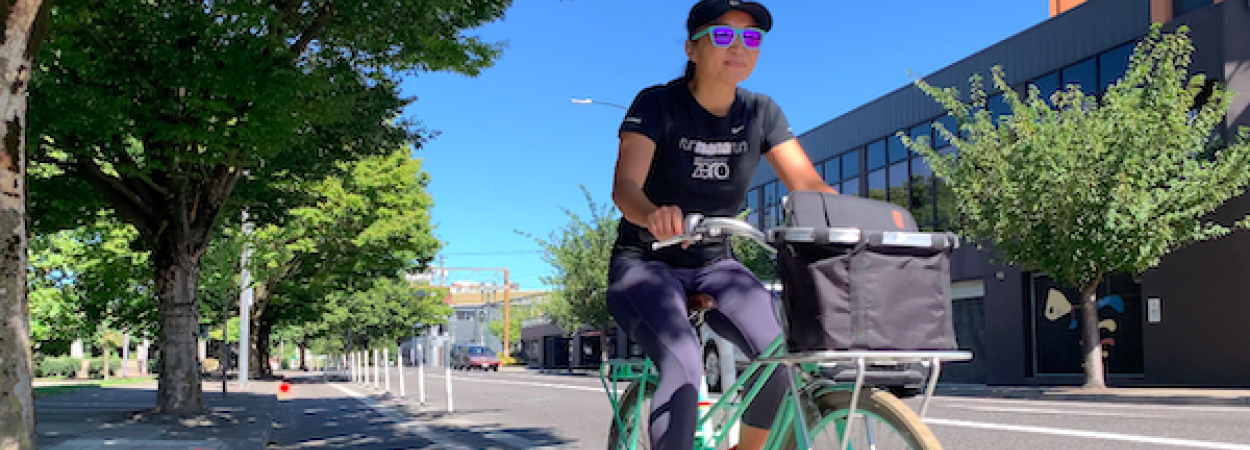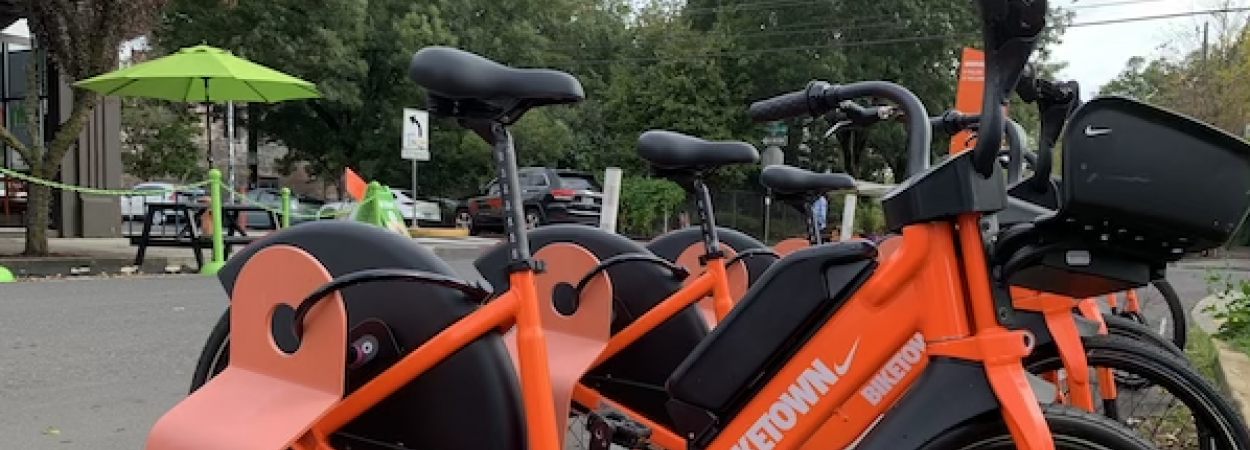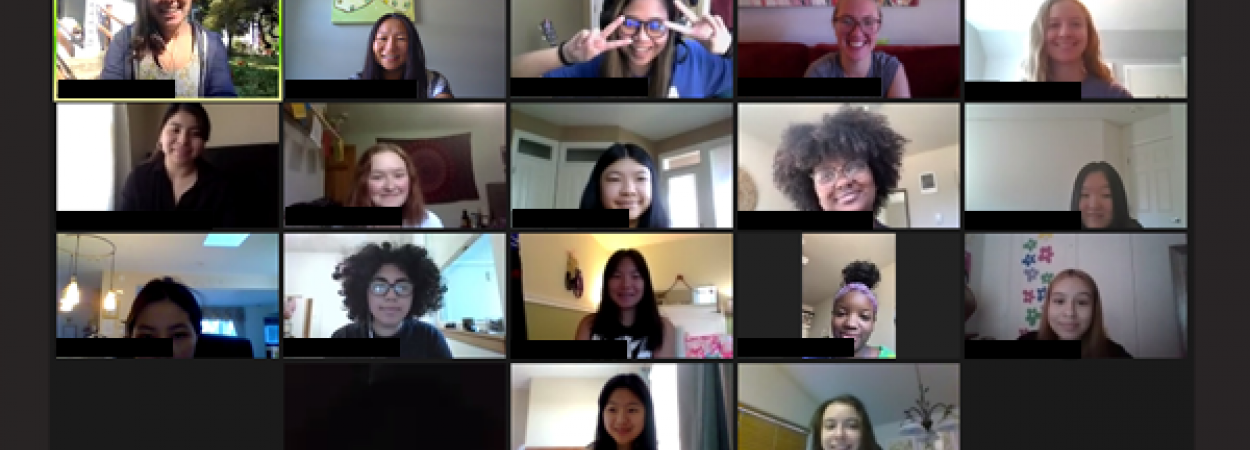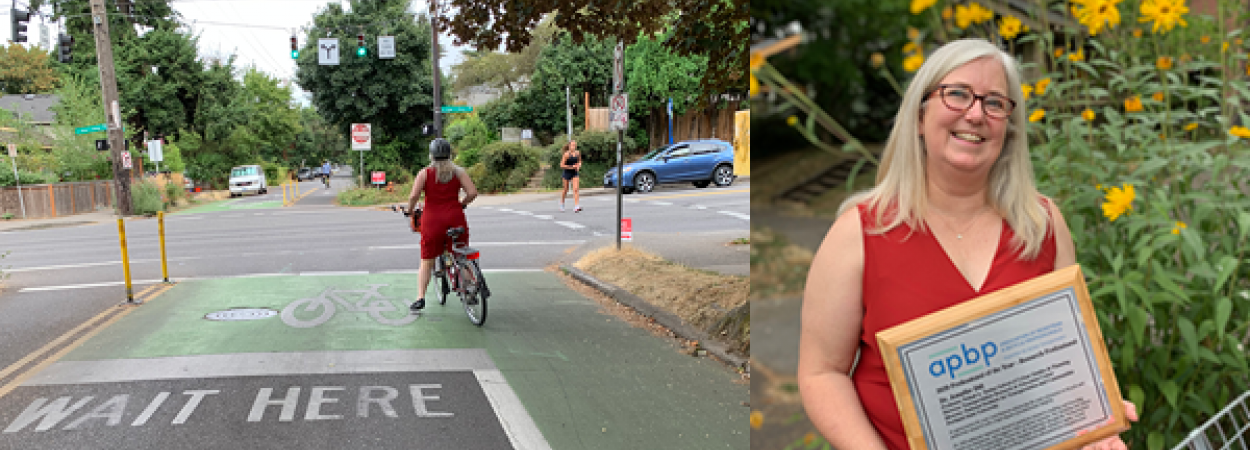 |  |  |

Michael McQueen, Portland State University
Is shared micromobility the ideal first/last mile supplement to transit? Can electric scooters make it easier for historically disadvantaged populations to get around? In just three years, brand-new fleets of e-scooters have substantially disrupted and altered the urban mobility landscape. For proponents, it's tempting to view them as a new answer to old problems. A just-released study finds however, that while there is potential for improved mobi…
Read More
We're proud to announce that our associate director, Hau Hagedorn, has been named the new Chair of Oregon's governor-appointed Bicycle and Pedestrian Advisory Committee.
OBPAC serves as a liaison between the public and the Oregon Department of Transportation. The eight-member committee advises ODOT in the regulation of bicycle and pedestrian traffic, the establishment of bikeways and walkways, and other statewide bicycle and pedestrian issues.
The committee meets six times a year in various locations around the state to support implementation of the Oregon Bicycle and Pedestrian Plan and listen to the views and concerns of interested citizens, local officials and ODOT staff.
The Transportation Research and Education Center (TREC) at Portland State University is home to the National Institute for Transportation and Communities (NITC)…
Read More
Photo by Cait McCusker
In our previous posts about Portland, Oregon bike travel and the pandemic from April and May, we observed bridge crossing stagnation and decline across the Hawthorne and Tilikum Crossing bridges during normal commute hours. To expand on these findings, we took a look at how Portland’s bike share system – BIKETOWN – has been impacted by the global pandemic.
Claims of a worldwide boom in bike share usage were reported during the early days of COVID-related closures. However, a few months have gone by and it’s now apparent that these findings were misleading due to limited sample selection. For example, some of the reported…
Read More
On March 23, 2020, Oregon — like many other U.S. states — was placed under a stay-at-home order to prevent the spread of COVID-19. At Portland State, we were faced with a decision: What to do about our 2020 transportation summer camps for Oregon high schoolers?
Our camps, up to this year, have been defined by the in-person, on-campus experience. Previous cohorts toured Portland's bikeways, saw the inside of Multnomah County's bridges, and sat down with professional engineers and planners to talk about tricky traffic problems. Would the program survive the transition to a virtual format?
We had already received 52 applications from promising Oregon high schoolers, and decided the camp was too important to cancel. With the financial support of the Oregon Department of Transportation and the Federal Highway Administration, we were able to shift to a virtual camp and still f…
Read More
We're proud to announce that Dr. Jennifer Dill, director of TREC at Portland State University, has been awarded the 2020 Research Professional of the Year award by the Association of Bicycle and Pedestrian Professionals (APBP). Given the need for ongoing quarantine, we had to get creative with her acceptance speech - Watch the video to see the award delivered to her by TREC staffers, handed off in a multimodal relay, before Dill accepts the award on a neighborhood greenway/bike boulevard.
Dill received the 2020 APBP Research Professional of the Year award for her contributions advancing the state of practice in bicycle and pedestrian research with a high degree of professional integrity. Dr. Dill addresses important research questions related to walking and bicycling, points out limitations, and suggests lines of future research. Her teaching and advice to stu…
Read More